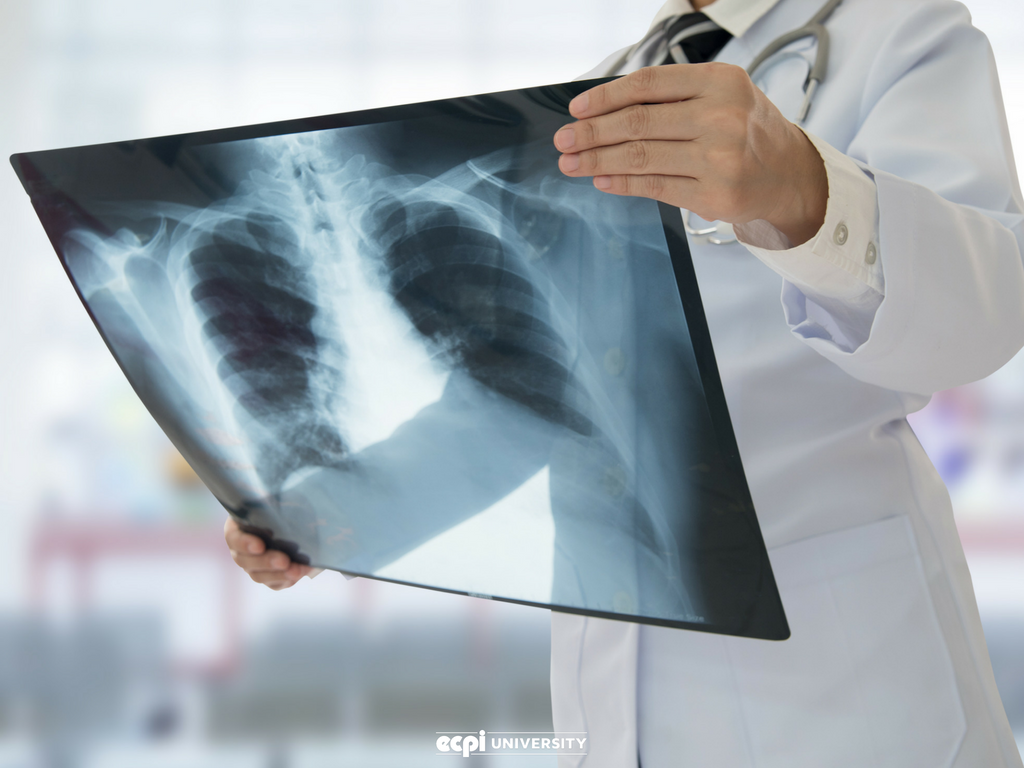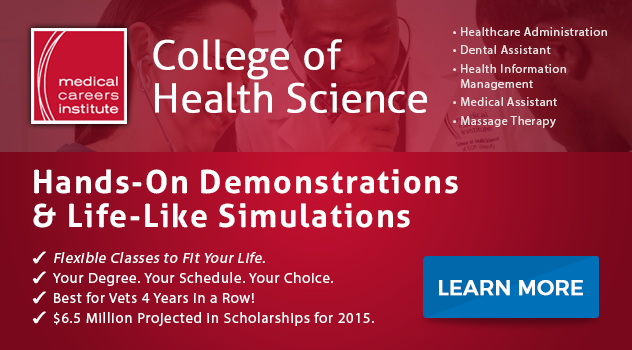Radiography Careers: How Can I Launch Mine?
Today we start with a puzzle: who earns a median of $60,070 per year, can expect continuous employment from graduation through retirement, and can get on a career track with only an associate’s degree? According to the Bureau of Labor Statistics (BLS), that describes a radiologist. In medical fields, radiology is one of the few quick paths to solid income, unlike the years needed to become a doctor, nurse, or specialist. Radiology careers are varied, interesting, and rewarding.
What is Radiography?
Radioactivity has existed since the creation of the universe some 13.77 billion years ago. Primordial radioactive isotopes exist naturally in the earth’s crust and have been around since the formation of the universe. More than 30 elements are naturally radioactive (with dozens of other elements having radioactive isotopes), says A-Z Chemistry.
Harnessing the radioactive energy of these elements is tricky stuff. The first scientists to experiment with radioactivity paid dearly for their work: Wilhelm Conrad Roentgen, Henri Becquerel, Marie Curie and her husband Pierre — they all suffered unhealthy side effects of their indiscriminate exposure to radioactive elements like curium, polonium, uranium and cobalt, as described by the site Non Destructive Testing (NDT).
In the 21st century we harness the energy of these elements to “see” into human body tissue, through bone, and into functioning organs in real time. Radiography includes all these methods, from the Medical Imaging and Technology Alliance:
- Computed tomography (CT)
- Nuclear medicine —positron emission tomography (PET), magnetic resonance imaging (MRI), and subspecialties like PET-CT
- Ultrasound
- X-ray radiography
Each method of using radioactive energy achieves additional diagnostic accuracy for medical professionals. The radiographer operating the sensitive, expensive equipment is expected to provide the most accurate, detailed and focused images possible.
In return for the high degree of precision required, the radiographer is rewarded with many benefits:
- Excellent pay — BLS estimates that, as of May, 2017, the median annual wage for magnetic resonance imaging technologists was $69,930; the median annual wage for the same time period for radiologic technologists was $58,440
- Superior work environment — These precision machines must be operated in clean, air-conditioned hospitals, labs or research centers; patient comfort is a must, so radiographers enjoy work conditions that provide pleasant patient conditions
- Great benefits — Respected radiographers work full-time, earning good healthcare insurance, vacations, sick days and other perquisites; radiographers work all three shifts and are often on call for emergencies
Breaking into Radiography
Getting into radiography begins with excellent education and hands-on training. It continues with employment ladder steps, possibly starting with X-ray radiography (one of the easier fields) and working up to more sophisticated imaging techniques.
Beyond the basic education, most radiologists need to be state-licensed or certified (though this does vary by state).
To find out if you have the aptitude for radiography, consider these necessary strengths, as outlined by the BLS:
- Are you detail oriented? Radiologic and MRI technologists receive specific, detailed instructions from doctors seeking exact images for diagnosis
- Do you have interpersonal skills? Radiologic and MRI technologists need to get patients calm, relaxed and ready for the imaging work; patients are often stressed, nervous, or in pain
- Do you have a knack for math? Radiologic and MRI technologists often have to make hundreds of calculations a day for chemical dosages, angle settings, duration of imaging, and more
- Are you physically strong? You may work an entire shift on your feet, and move or lift patients who need help
- Do you have technical skills? Radiologic and MRI technologists must understand how to operate complex, technologically advanced, expensive machinery
Why Education Matters in Medical Radiography
No hospital or lab will consider you for radiography without adequate education. At the very least, you need an Associate’s Degree in the field, such as an Associate of Applied Science Degree in Medical Radiography.
A good education combines classroom study with practical clinical experience:
- Radiation Biology and Protection
- Equipment Operation and Quality Control
- Image Production and Evaluation
- Radiographic Procedures
- Patient Care and Education
Upon graduation from an accredited program, the budding radiographer can work in hospitals (which, says the BLS, employ nearly 60 percent of radiographers), doctors’ offices, outpatient centers, or medical and diagnostic laboratories.
Newly minted radiographers can become specialists by getting postgraduate credits in specialties such as MRI radiography. A radiographer with an Associate’s Degree can move on to earn a Bachelor of Science in radiography, or step up again to a Master’s Degree in radiography. Specialized certifications are also available.
If your career future is a puzzle, jump-start your career in radiography, by connecting with a trained ECPI University admissions advisor. They can walk you through your options, including earning an Associate of Applied Science in Medical Radiography. Don't hesitate, your future career could be waiting.
It could be the Best Decision You Ever Make!
DISCLAIMER – ECPI University makes no claim, warranty, or guarantee as to actual employability or earning potential to current, past or future students or graduates of any educational program we offer. The ECPI University website is published for informational purposes only. Every effort is made to ensure the accuracy of information contained on the ECPI.edu domain; however, no warranty of accuracy is made. No contractual rights, either expressed or implied, are created by its content.
Gainful Employment Information – Radiography - Associate’s
For more information about ECPI University or any of our programs click here: http://www.ecpi.edu/ or http://ow.ly/Ca1ya.





